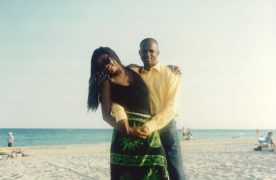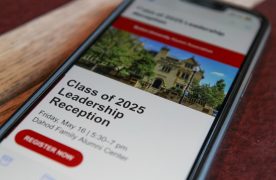Chinese residents are furious after a McCafé franchise opened inside a historic 84-year-old villa located in the Chinese city of Hangzhou. The building briefly housed Chiang Ching-kuo, former Taiwanese president and son of former Chinese Nationalist Party leader Chiang Kai-shek.
In the building’s long history, Ching-kuo stayed in the villa for a month during the Chinese Civil War before the Chinese Communist Party drove the Nationalist Party out of China in the late 1940s. The Chinese government used the building to house employees from 1949 to 2004.
In 2004, the Chinese Cultural Relics Bureau declared it a “cultural relic.” The house was then sublet to a company that turned it into a private club, which was shut down by the Chinese government in 2014. Shen Chunlei, a local businessman, then rented the building and spent $800,000 to renovate it. He opened a McCafé inside the building Sunday.
Though the building’s exterior has remained relatively the same, the Cultural Relics Bureau ordered the building’s interior to be filled with posters portraying Ching-kuo’s life to remind visitors of the villa’s history.
Locals call Chunlei’s actions “Western cultural desecration,” CNN reported.
With the McCafé, the historical site also doubles as a food court, which is convenient, but extremely disrespectful.
Chunlei, under the impression that opening the McCafé would benefit the community, told CNN that he didn’t understand why locals were angry at him for renovating an “old, poorly maintained building that barely had been laid eyes on.”
But that “old, poorly maintained building” is a historical centerpiece to locals. Chunlei sees the McCafé as an improvement to a useless building while the Hangzhou community sees it as an intrusion on its culture. And it’s the locals who dictate what the building truly is.
Yes, the monthlong stay of a political leader may seem insignificant to outsiders, but it holds great significance to those who live around it.
Ideally, the government would purchase the building and cover the maintenance and upkeep costs. Government intervention is the only way to keep the building safe from Western intrusion.
However, there is a point when the community must let go of the building, especially when it doesn’t have the resources or willpower to maintain it. If Chunlei was telling the truth, the building was in pretty bad shape when he acquired it. But even if he uses the money generated from the McCafé helps with the house’s upkeep, the idea of doing so is a bit dirty. Part of the building is being sold off to save the rest of it in a Faustian twist.
It’s unrealistic to expect every old building to be untouched by modern conventions. If that were the case, we would all be squatting over chamber pots in our brownstones. But this villa holds a significant place in the community’s hearts. It’s a part of their history.
This sort of thing would seem relatively normal in America, where commodifying history seems commonplace. Fly to Washington D.C. and you’ll be overwhelmed by how all of the different ways people have put the Washington Monument on a keychain. Even here in Boston, you can pay money to throw bags of tea in the Boston Harbor. Attaching profit to history cheapens it.
The McCafé is a symptom of America spreading this idea to places where it doesn’t belong. McDonald’s is a company synonymous with American capitalism. McDonald’s is guilty of capitalism’s worst trait: squeezing a dollar out of anything you can get your hands on. People will surely visit the new McCafé because it’s located in a historic building.
Opening a McCafé in Hangzhou may have generated lots of buzz, but a global corporation has no business intruding on a foreign relic. The bottom line is, McDonald’s is a money-hungry corporation. It opens restaurants for strictly making money, not drawing attention to a relic.
And sure, those in Hangzhou could tell others of how great this building once was. They could pass stories down of how a once prominent feature in their town was ruined by the stain of American capitalism. But the stories would never compare to the real, untouched thing. Because history is best remembered when it’s tangible.













